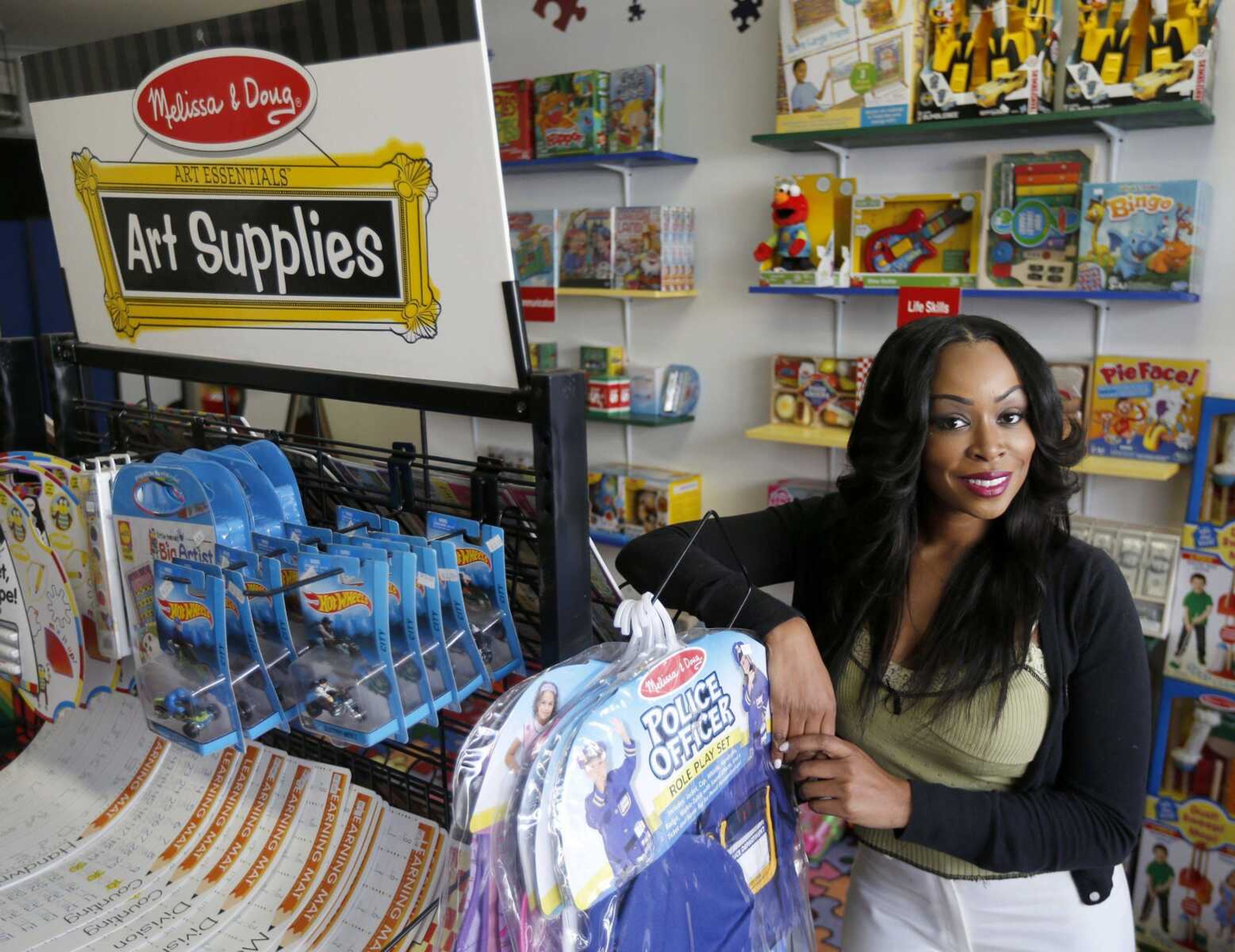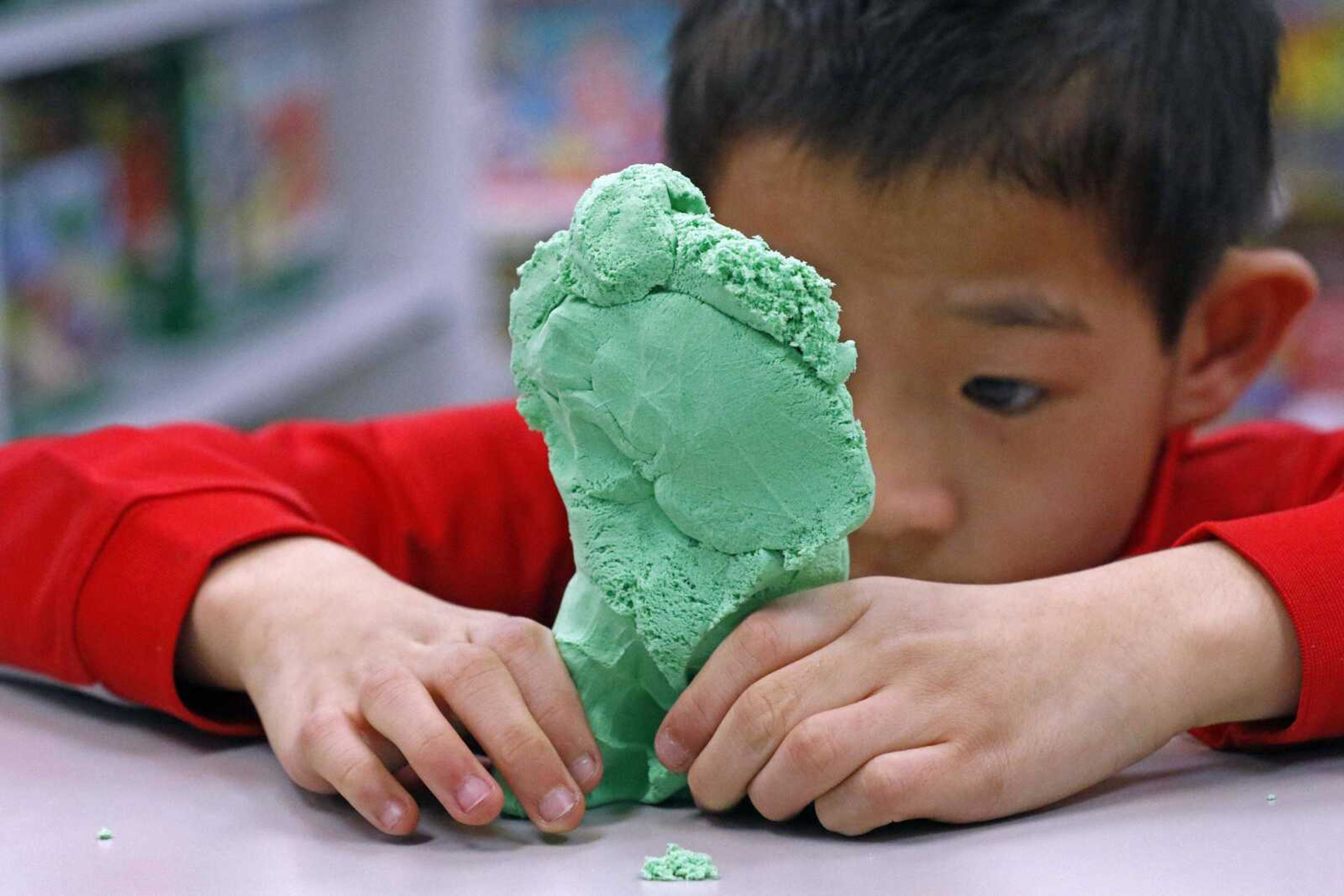NEW YORK -- Toy stores, with bright lights, loud sounds and crowded aisles, can be hard to manage for children with autism or other sensory issues.
For parents, finding toys that match their children's skill sets and will hold their attention can be a process of trial and error.
Big toy sellers and specialists are trying to provide better options.
Hasbro, for instance, offers tips on how parents can teach autistic children to play with Mr. Potato Head or a My Little Pony set.
Toy maker Melissa & Doug offers stores special catalogs.

A Toys R Us in King of Prussia, Pennsylvania, turned off its music for three hours on a recent Saturday morning and turned its break room into a quiet zone as part of an event planned with the Greater Philadelphia Autism Society.
The company's 100 stores in the U.K. have been offering similar hours for one day a year since 2014, and Toys R Us plans to bring similar events to more of its 900 U.S. stores.
Chuck E. Cheese's, the chain with arcade games and rides, similarly plans to turn off the music and dim the lights at 40 Northeast restaurants for a couple of hours one Sunday a month starting in January as part of a trial run.
In the meantime, small stores designed specifically for children with sensory issues are popping up as well.
"The need for a store like this is even bigger than I thought it would be," said Bethany Mathis, who opened Time 4 Toys last month after having a hard time finding toys for her 8-year-old son with sensory-processing issues.
The walls at the store in Flowood, Mississippi, are painted in soft colors, and children can test out the toys.
An estimated one in 68 children have autism or a related disorder, according to a government study based on 2012 data.
That's up from one in 150 a decade before.
Symptoms of autism vary widely and can range from mild social-interaction problems to repetitive behaviors to difficulty speaking or even the inability to speak.
This can make choosing toys even harder than it is for unaffected children.
Jamilah Rahim opened Spectrum Toy Store in Chicago this year after she realized no toy stores were meeting that need.
As an in-home behavioral therapist, she saw parents spend money buying toys online that ended up not interesting their children.
At her 700-square-foot store, children can sit and play with any of the toys, and parents can see whether they like them before buying.
"It's more of an experience than just a one-stop shop for them to buy toys," said Rahim, who still works as a behavioral therapist part-time, which helps her discover new toys to stock.
Meghan Hetherton drove four hours from her home in Eaton Rapids, Michigan, to visit the store.
Two of Hetherton's four children are autistic, and when she takes them shopping at big stores, her 4-year-old son hums to cope with the crowds and noise.
Hetherton often finds herself apologizing to store workers.
"I shouldn't have to," she said, but "store employees just don't understand."
At Spectrum Toy Store, her children pulled toys from the shelves, played with putty and tried on chewable silicone jewelry before she bought some.
"They were able to be themselves," Hetherton said.
Dimming the lights and turning off the music can help some autistic children, but others still may be affected by a large space, said Dr. Eileen Crehan, a postdoctoral fellow at the autism program at Rush University Medical Center in Chicago.
She's noticed movie theaters and ballparks also have begun offering sensory-friendly days.
"It's sort of catching on," Crehan said.
After hearing from employees and customers, Hasbro Inc. teamed up with The Autism Project two years ago to teach parents and caregivers how autistic children can play with its toys.
The company launched a site called Hasbro Toybox Tools with videos and downloadable instructions for some of its more popular toys, such as Baby Alive dolls and the Chutes and Ladders board game.
"Play doesn't always come natural with kids with autism," but it's important to their development and helps them learn to socialize with others, said Sandra Pierce-Jordan, the executive director of The Birchtree Center, a nonprofit in Newington, New Hampshire, that works with autistic children.
Emily Berman said she has had to teach her daughter how to pretend to eat plastic toy foods or how to move a toy train on its tracks.
Her daughter is non-verbal, making it hard to pick out toys, said Berman, who is a life coach in Encinitas, California.
"I wish I knew what she wanted," she said.
Berman has bought toys suggested by behavioral therapists and buys many items online.
"A lot of it is trial and error," Berman said.
Another toymaker, Melissa & Doug, began printing a dedicated catalog about five years ago after it noticed an increase in letters and calls from parents who said their autistic children loved the company's wooden puzzles or stuffed animals. It also added a section to its website that lets shoppers browse for toys by specifying the skills the child needs to work on.
Melissa & Doug said some stores have added special sections in their stores, and notes come in from parents whose children spoke for the first time playing or had other developments.
"It's really fulfilling," co-founder Melissa Bernstein said.
Connect with the Southeast Missourian Newsroom:
For corrections to this story or other insights for the editor, click here. To submit a letter to the editor, click here. To learn about the Southeast Missourian’s AI Policy, click here.







